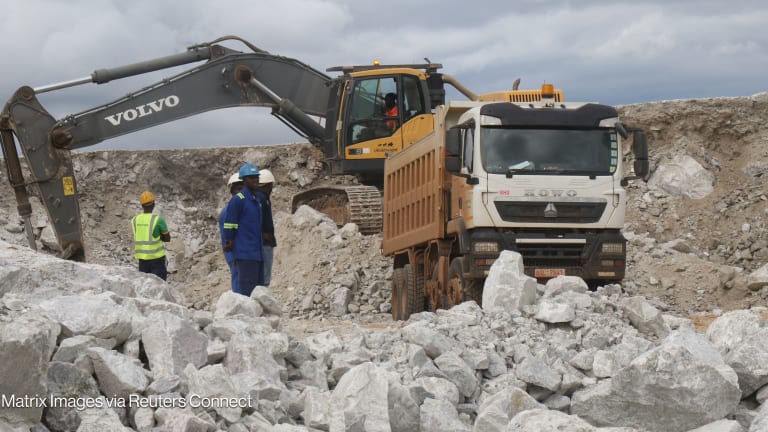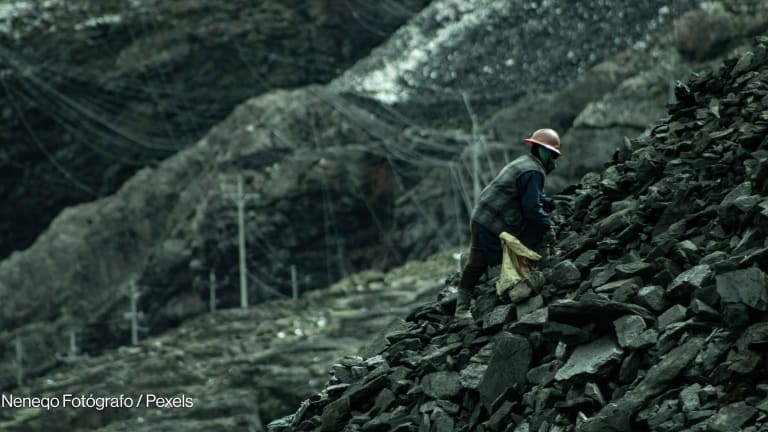
The word “unprecedented” seems to have lost all meaning. In the last few years, we have all gone through multiple events that would normally be thought of as once-in-a-generation occurrences: major financial shocks, a global pandemic, and a war on Europe’s doorstep.
Sign up for Devex Invested
The must-read weekly newsletter that keeps you up to date with news about business, finance, and the SDGs.
Underpinning this shift is the world’s energy supply. Supply lines have long been the contours defining the world’s energy map; a map which is now rapidly being redrawn. The world needs new zero-emission fuels from new places, at scale. This moment is a major opportunity for development finance institutions and institutional investors that actually is unprecedented.
Many of the world’s key industries are starting to transition away from oil and gas to accommodate net-zero targets. Countries want to end their reliance on a select number of fossil fuel exporters and environmental, social, and corporate governance compliance is a top consideration of investors. The development finance community has the chance to catalyze this global energy transformation if it harnesses the opportunity open to it. And the greatest opportunity lies in the global south.
As state actors broaden their options to mitigate risk — weaning themselves off Russian oil and gas, for example — investment banks and development finance institutions should look to renewable-resource-rich emerging economies. It is there that the next generation of suppliers and exporters of zero-carbon fuels will be found.
Part of this is down to nature and abundance of wind and solar resources. The production and transport costs of green fuels in Latin America and Africa are expected to be over 20% less than the average cost of production in other parts of the world, due to plentiful solar and wind power in these regions. Simply put, it is cheaper, easier, and cleaner to produce the electricity needed to create fuels such as green hydrogen where the sun shines and the winds blow almost every day.
These budding energy hubs, particularly maritime states, are primed to transform themselves from fossil fuel importers to zero-carbon fuel suppliers — and the international community, such as the European Commission which has just recognized some future fuels, including hydrogen, as renewable, must take note.
Yet while countries in the global south may be better positioned to be leading green fuel producers, there are hurdles to overcome to achieve that status. They’re going to need early investment from the international community as well as unprecedented and targeted support from multilateral banks and international funds to build an industry capable of supporting both domestic and global needs.
LMICs must be supported by investors to build the necessary infrastructure they need to make, store, and easily export green fuels.
Some countries are already out of the starting gate. Egypt’s 2035 Integrated Sustainable Energy Strategy has earmarked investment in green hydrogen and is backed by the EU. Chile's National Strategy for Green Hydrogen outlines its ambitious goal to make itself the lowest-cost producer by 2030. Countries such as Algeria, Argentina, Uruguay, Saudi Arabia, and Morocco have followed suit.
Early investment, as the EU is doing in Egypt, sends a much-needed market signal, which can be easily scaled by other investors. It will accelerate technology-readiness levels, increase deployment to reach the required scale of production, and drive down production costs of net-zero carbon fuels within this decade.
But this investment must be holistic. It is more than just wind and solar farms: It is about the production facilities and investment in infrastructure. This includes ports and engagement with shipowners so that the new ships, which will be needed to transport these new fuels globally, can be built at the scale and the speed required.
The de-risking of the global energy supply chain will come from the reduction of reliance on countries whose sovereign territory sits on top of large fossil fuel reservoirs. As anyone can truly produce these new green fuels, a country’s success in the new market relies on how quickly it can act. The winners will be those who enable an ecosystem that promotes long-term investment, implement export strategies and policies along with enhanced international cooperation agreements, and position their fuel-production infrastructure close to the coast.
Shipping is expected to move more than 50% of globally traded green fuels by 2050, so investors who cut out transport costs will stand to benefit.
Traditional investment in renewable projects in LMICs doesn’t always tick the boxes of development finance institutions due to a perceived lack of scale. Combining investment in generation of zero-emission fuels for domestic use as well as for export with the required infrastructure provides the scale needed.
The world is going to need almost 20 times the amount of green fuels currently in production by 2050 to satisfy all parties. According to a recent International Chamber of Shipping report, the shipping sector alone will require the equivalent of the world’s renewable electricity production for its net-zero fuel needs. So investing in larger-scale generation, production, and transportation infrastructure today will create a stronger base of bankable projects that will, if maintained, grow exponentially in the coming decades.
The global gradual shift toward greener fuels needs to increase its pace. Those who are best positioned to take advantage will find themselves resource-rich and at the forefront of the new energy picture — but only if they heed the opportunities in front of them. This presents an opportunity for all who have the vision to grasp this moment.









